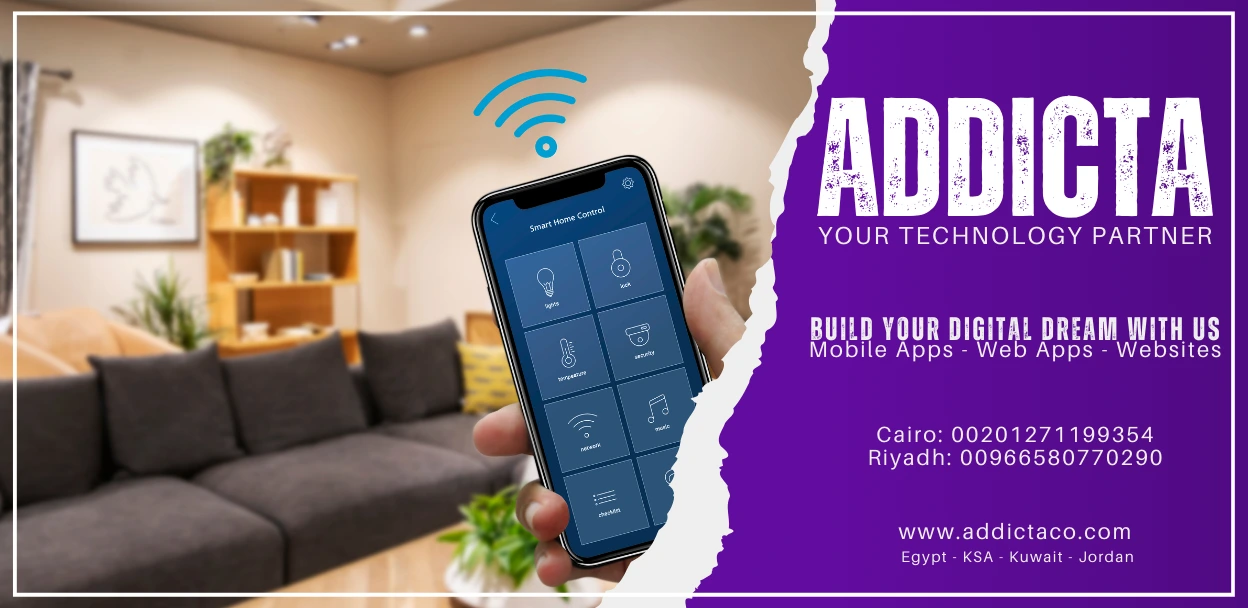The concept of smart homes has gained tremendous popularity in recent years, with more homeowners looking to integrate technology into their everyday lives. Smart Home app development plays a crucial role in this transformation, offering users the ability to control and monitor various devices, such as lighting, security systems, and thermostats, from a centralized mobile app. These apps provide convenience, energy efficiency, and enhanced security, making them indispensable for modern living.
What is Smart Home App Development?
Smart Home app development involves creating mobile applications that connect and control multiple smart devices within a household. The focus is on delivering a seamless, intuitive user experience, where homeowners can manage their home environment with just a few taps on their smartphone. These apps leverage advanced technologies like IoT (Internet of Things), AI, and voice recognition, ensuring that various devices can communicate with each other and be controlled remotely.
In essence, Smart Home app development allows users to automate routine tasks, such as adjusting the temperature, locking doors, or switching off lights. The ability to manage these functions through a unified platform makes smart home apps a cornerstone of the modern connected home.
The Importance of Smart Home App Development
With the rise of IoT devices, Smart Home app development has become essential for enhancing user experiences and improving home efficiency. By integrating smart appliances and devices into one app, users can create personalized environments, monitor energy usage, and ensure that their homes are secure, even when they’re away. For developers, creating smart home apps offers a unique opportunity to cater to the growing demand for more efficient, tech-driven homes.
Furthermore, Smart Home app development enables homeowners to set automated schedules for their devices, making their living spaces more energy-efficient. For instance, smart thermostats can learn users’ habits and adjust the temperature accordingly, reducing energy costs.
Key Features in Smart Home App Development
When designing a smart home app, it’s essential to consider the specific needs and preferences of users. Some of the most popular features integrated into Smart Home app development include:
- Remote Control: The ability to manage home devices from anywhere is a primary feature. Users can turn off appliances, adjust the thermostat, or monitor security cameras while away from home.
- Voice Integration: Many smart home apps now support voice commands via virtual assistants like Alexa or Google Assistant, allowing for hands-free control.
- Device Synchronization: A successful smart home app must be able to sync multiple devices, ensuring that users can manage their entire home ecosystem from a single platform.
- Security Alerts: Advanced security features, such as motion detection and real-time alerts, help users monitor their homes and receive notifications in case of any unusual activity.
- Energy Monitoring: Tracking energy usage in real-time is becoming a standard feature, allowing users to optimize their energy consumption and save on bills.
Technologies Used in Smart Home App Development
Several technologies are instrumental in Smart Home app development, ensuring that apps are both functional and future-proof. The most prominent include:
- Internet of Things (IoT): IoT forms the backbone of smart home solutions, connecting various devices and allowing them to communicate over a network. It enables the integration of appliances like lights, speakers, and security systems into a single app.
- Artificial Intelligence (AI): AI plays a critical role in personalizing smart home experiences. For example, AI algorithms can learn user behavior and optimize functions such as lighting and temperature control based on routine.
- Cloud Computing: Storing data on the cloud allows for real-time updates and ensures that users can access their smart home systems from anywhere.
- Voice Recognition: Voice-controlled devices are becoming increasingly popular in Smart Home app development, offering users hands-free access to control their home environment.
Benefits of Smart Home App Development for Homeowners
There are several reasons why Smart Home app development is transforming the way people manage their homes. These benefits include:
- Convenience: Smart home apps offer unparalleled convenience by allowing users to control multiple devices with a single app, reducing the need for numerous remote controls.
- Increased Security: With integrated security features, homeowners can monitor their properties remotely, receive real-time alerts, and even view live footage from security cameras.
- Energy Efficiency: By automating routine tasks like turning off lights and adjusting thermostats, smart home apps contribute to lower energy consumption and reduced utility bills.
- Customization: Smart home apps can be tailored to individual preferences, allowing users to create custom scenes or schedules that adjust their home environment to match their lifestyle.
Challenges in Smart Home App Development
While Smart Home app development has immense potential, developers must address several challenges. The most significant challenge is ensuring interoperability between various smart devices. With numerous manufacturers and communication protocols in the market, creating an app that supports different devices seamlessly is no small task.
Additionally, security is a primary concern in Smart Home app development. As these apps are connected to the internet, ensuring that they are protected from cyber threats and unauthorized access is crucial. Developers need to incorporate encryption, secure sign-ins, and regular updates to safeguard users’ data and privacy.
The Future of Smart Home App Development
As technology continues to evolve, Smart Home app development is expected to grow in sophistication. With advancements in AI, IoT, and 5G, future smart home apps will likely offer more personalized and real-time functionalities, creating even more immersive and automated home experiences. Integration with emerging technologies like augmented reality (AR) could also enhance how users interact with their home environments.
Smart Home app development is revolutionizing the way we live, making homes more efficient, secure, and personalized. From voice integration to energy monitoring, the possibilities for smart home apps are endless. As developers continue to push the boundaries of what’s possible, homeowners can expect even greater convenience, security, and control in the future of smart living.
This is the Time to choose the best App Development Company to create your Smart home app.

